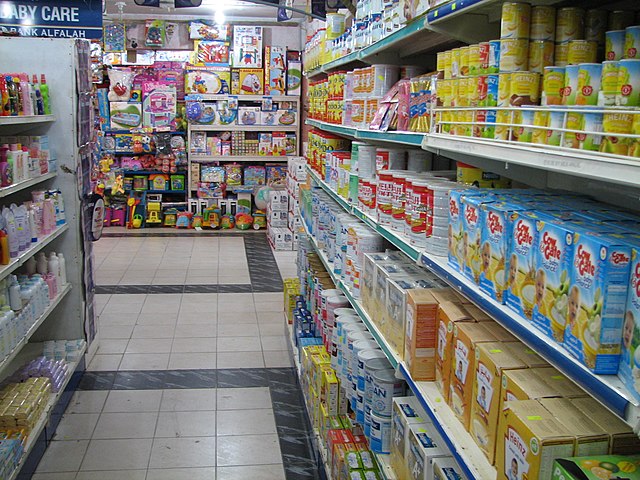Baby food is any soft, easily consumed food other than breastmilk or infant formula that is made specifically for human babies between six months and two years old. The food comes in many varieties and flavors that are purchased ready-made from producers, or it may be table food eaten by the family that has been mashed or otherwise broken down.
Commercial baby food is often a humanitarian relief item. Delivery of infant formula may be criticized because it can discourage breastfeeding and the local water supply may be contaminated after a disaster, making powdered formula unsafe.
This pureed baby food was made at home and frozen in glass jars.
Market aisle stocked with commercial baby food
A small jar of pureed plums. A baby who is just beginning to eat baby food might not swallow even one small spoonful.
Infant formula, also called baby formula, simply formula, baby milk or infant milk, is an ultra-processed food designed and marketed for feeding to babies and infants under 12 months of age, usually prepared for bottle-feeding or cup-feeding from powder or liquid. The U.S. Federal Food, Drug, and Cosmetic Act (FFDCA) defines infant formula as "a food which purports to be or is represented for special dietary use solely as a food for infants by reason of its simulation of human milk or its suitability as a complete or partial substitute for human milk".
Infant formula
An infant being fed from a baby bottle
Poster advertisement for Nestle's Milk by Théophile Alexandre Steinlen, 1895
A 1915 advertisement for "Nestlé's Food"








